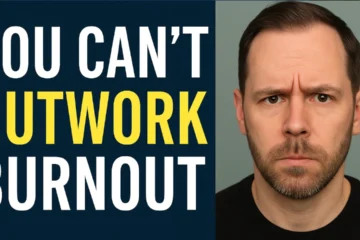Attention Deficit Hyperactivity Disorder (ADHD) is often perceived as a childhood condition, but it frequently persists into adulthood, affecting millions of people worldwide. It’s just that people learn to cope with their symptoms with various levels of success, and a varying mental health cost. While medication and behavioural therapies are commonly prescribed, an increasing number of adults are turning to hypnotherapy to manage their ADHD symptoms. As a professional hypnotherapist, I’ve witnessed firsthand the transformative benefits hypnotherapy can offer to those grappling with ADHD.
Understanding ADHD in Adults
ADHD is characterised by persistent patterns categorised into inattentiveness, hyperactivity and impulsiveness that interfere with functioning or development. Adults with ADHD often struggle with time management, organisation, goal setting, and maintaining relationships. These challenges can lead to frustration, anxiety, and low self-esteem. Traditional treatments include medications like stimulants and non-stimulants, cognitive-behavioural therapy (CBT), and lifestyle adjustments. However, these methods don’t work for everyone, prompting many to seek alternative therapies.
How Hypnotherapy Helps
Hypnosis is a state of focused attention and heightened imagination. While it might seem to be problematic for people with ADHD, they actually often excel in hypnosis. This is because despite the name, ADHD is not so much an attention deficit but an attention mismanagement issue. The ADHD brain is an interest based brain, and for many, hypnosis is a novel and interesting thing to do! It allows the ADHDer to exploit their creativity and often wild imagination in a positive manner.
Of course, make sure you find a hypnotherapist that doesn’t bore people into hypnosis by using long winded induction, overly obsessing on relaxation. They might just send people to actual sleep or frustrate them.
Here’s how hypnotherapy can specifically benefit adults with ADHD:
- Reduction of Hyperactivity and Impulsivity
Hypnotherapy can promote relaxation and calmness, reducing the feelings of restlessness and impulsivity that are common in ADHD. Through techniques such as progressive relaxation and visualisation, individuals can learn to manage their hyperactive tendencies and respond to situations more thoughtfully.
- Improved Emotional Regulation
Emotional dysregulation is a significant challenge for many adults with ADHD. Hypnotherapy can help individuals access and process their emotions more effectively. By exploring underlying emotional triggers and practising mindfulness techniques during sessions, individuals can develop better strategies for managing their emotions in everyday life. - Managing Rejection Sensitivity Dysphoria (RSD)
Hypnotherapy can be particularly effective in addressing the intense emotional responses associated with RSD. By using techniques to reframe negative thoughts and build resilience, individuals can learn to respond to perceived rejection or criticism with greater emotional stability. Hypnotherapy can reduce the PTSD-like emotional responses, help create a mental buffer, reducing the impact of RSD on daily life. - Enhanced Self-Esteem and Confidence
Hypnotherapy can address the negative self-talk and low self-esteem that often accompany ADHD. Through positive affirmations and cognitive restructuring, individuals can build a more positive self-image and boost their confidence. This can lead to a more proactive approach to managing ADHD symptoms and pursuing personal and professional goals. - Better Sleep Patterns
Many adults with ADHD struggle with sleep disturbances, which can exacerbate symptoms. Hypnotherapy can improve sleep hygiene by promoting relaxation and reducing anxiety. Techniques such as guided imagery and deep breathing exercises can help individuals establish a more consistent and restful sleep routine.
- Stress and Anxiety Reduction
Stress and anxiety often go hand in hand with ADHD, creating a vicious cycle that can worsen symptoms. Hypnotherapy provides tools for stress management, such as deep relaxation techniques and mental imagery, which can reduce overall anxiety levels and improve daily functioning.
What to Expect in a Hypnotherapy Session
A typical hypnotherapy session for ADHD might begin with a discussion of the individual’s specific challenges and goals. The hypnotherapist will then guide the individual into a hypnosis using various induction techniques. Once in this state, the therapist will use a series of tailored suggestions and visualisations aimed at addressing the individual’s ADHD symptoms.
Sessions are usually 90 minutes long and are conducted weekly or bi-weekly, depending on the individual’s needs. The aim of hypnotherapy is to help the client rapidly, so that you will not have to see your hypnotherapist every week for the next 6 months. After an initial discussion, your hypnotherapist will be able to give you an estimate of how many sessions you would need. It’s important to note that hypnotherapy is most effective when used as part of a comprehensive treatment plan, including medication, therapy, and lifestyle changes.
Conclusion
Hypnotherapy offers a promising complementary approach for adults seeking relief from ADHD symptoms and can significantly improve the quality of life. As with any therapy, it’s essential to work with a qualified and experienced hypnotherapist to ensure the best possible outcomes.
If you’re an adult struggling with ADHD, consider exploring hypnotherapy as a part of your treatment plan. It may provide the missing piece in your journey toward better management of your symptoms and a more fulfilling life.
If that’s something you are interested in, either for yourself or someone you know, get in touch!


